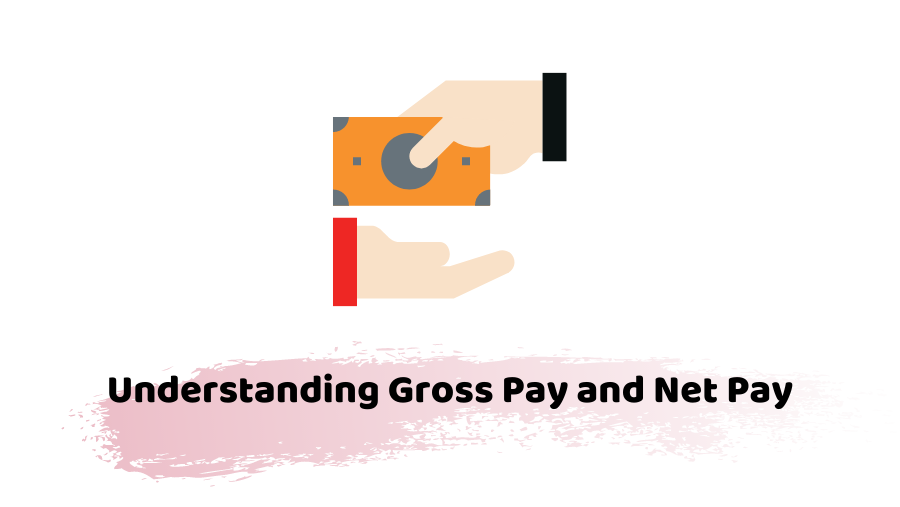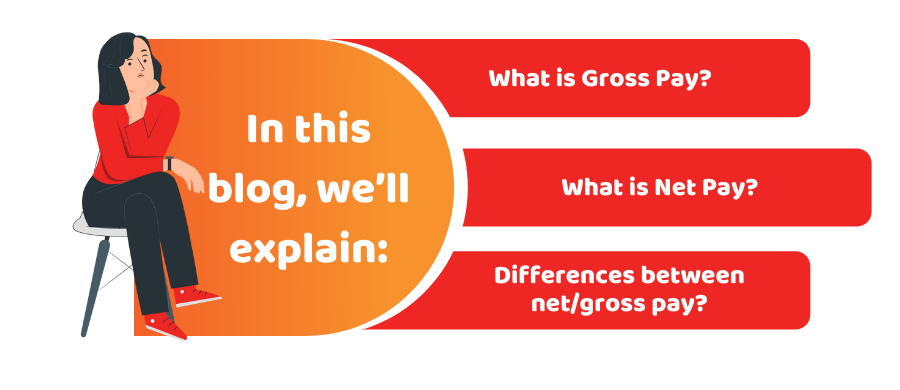Do you know what’s being deducted from your paycheck and what is going to be your take-home pay? If you are a first-time worker, you’d be surprised to know that if you work 10 hours for £10, you won’t get £100 on your paycheck. This shock can be baffling. Before you cash your paycheck, the government and other entities deduct a certain amount from it that reduces your earning and thus disturbs your budget. For this reason, you need to understand what is gross pay and what is net pay. In this way, you could know that you’re getting paid correctly.
Accotax is an accounting firm that offers inclusive financial services for small business owners, self-employed, landlords, and freelancers at a reasonable price. Contact us today!
In this blog, we’ll explain:
- What is Gross Pay?
- What is Net Pay?
- Differences between net/gross pay?
What is Gross Pay?
Gross pay is the total money you earn every month, before any deductions or taxes. You get this pay hourly, weekly, monthly or annually. In the UK, this amount can’t be below the National Minimum Wage fixed by ACAS. Besides, it is generally referred to as income/salary in regular conversations. And, can be called advertised salary. For instance, at the time of sending an offer letter to a new hire, the salary mentioned salary will be the gross pay.
Calculating Gross pay
Before working out your gross pay, you need to:
- Find out the gross pay period
- Work out your annual number of pay periods
- Multiply the pay by the total periods of the year
Let’s take an example if you earn £7000 per month. It means that there are 12 pay periods as 12 times your employer will pay £7000 to you in a year. In this way, your annual gross pay would be £7000 x 12= £ 84,000. Alike this, you can use this method to calculate your hourly, daily, weekly or monthly rate.
What is Net Pay?
Net pay is the amount left in your payslip that you can cash after subtracting taxes and other deductions. These can be legal/compulsory deductions and optional deductions that you have. It is take-home pay that you as an employee can take home. In addition, this pay is smaller than the gross pay due to the taxes and other deductions.
Ok, so you now know what is net pay, let’s see how to calculate it.
We offer a full-featured payroll service to manage payroll processing and tax obligations. Get in touch with us now!
Calculating Net Pay
Whether you’re a salaried or hourly employee, you need to follow these steps to calculate your net pay:
- Determine your gross salary
- List down your deductions and the amounts
- Add those deductions
- Subtract them with your month’s gross salary
For instance, if your monthly pay is £4,000 and your total deductions are £400, your take-home pay or net pay would be £3,600. Moreover, this method can be used to work out your weekly, daily, hourly or monthly rate.
Deductions from net pay include:
Compulsory Deductions:
- Government Income tax – the basic is 20%. The higher rate is 40% and the additional rate is 45%.
- National Insurance – it’s the -same as income tax collected to get contributions for state pension and social security payments.
- Student Loan Repayments – You have to repay 9% for plans 1, 2 and 4 and 6 % (over the threshold earning) for the Postgraduate Loan taken from SLC.
Optional Deductions:
- Charitable contribution
- Life insurance premium
- Health insurance premium
- Retirement earning
- Pension contributions.
- Employer specific deductions
Difference Between Gross vs Net Pay
Generally, your gross salary appears at the top of your salary statement. It’s the total amount your employer pays you as per the job agreement. On the other side, the net salary is your take-home pay after deducting all the contributions, taxes from the gross salary.
Remember, your net salary is equal to the gross pay minus all deductions. Your netpay generally appears in larger font to distinguish it easily. For example, if you earn £1300 while £300 are taken as a deduction. In such a case, your gross pay will be £1300, whereas your net pay will be £1000. The difference between your gross and netpay is the deductions.
Quick Sum Up
To conclude, we can sum up that you need to know- what is net pay and gross pay – to determine what exactly you will get from your salary. Understanding these concepts is essential to manage your finances, boost your earnings and pursue your goals.
Accotax is the top choice for sole traders and small businesses as it handles all payroll and payroll tax needs at an affordable rate. Reach out to our certified accountants in London today!
Get an instant quote for a customized offer!
Disclaimer: This blog provides general information on Gross and Net Pay.






















































